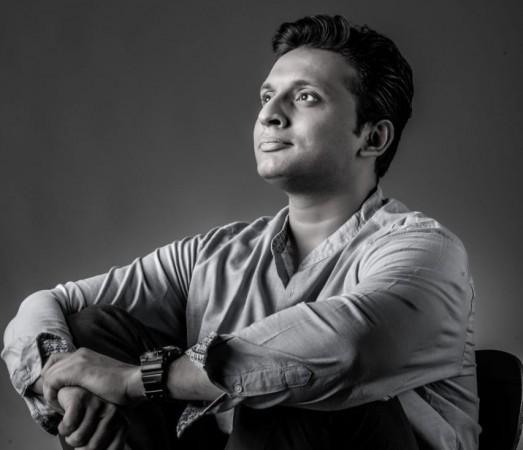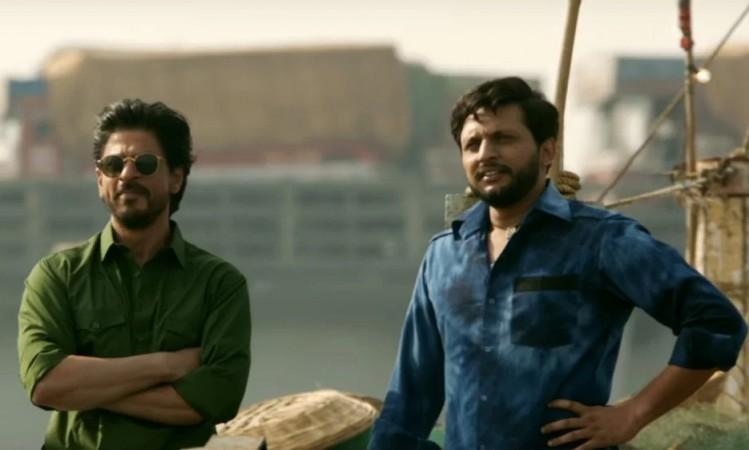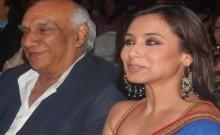
"Man needs his difficulties because they are necessary to enjoy success," these inspirational words from APJ Abdul Kalam, the former president of India, fall in right place when you talk about Bollywood actor Mohammed Zeeshan Ayyub.
He might not want to tell the world about the kind of difficulties that he had faced in his life, but he will never disappoint you with the knowledge that he possesses about his craft. Known for his brilliant performances in movies like No One Killed Jessica, Raanjhanaa, Tanu Weds Manu 2, Shahid, Raees and now Article 15, Zeeshan has always proven his mettle as an actor on the big screen.
In an exclusive conversation with International Business Times India, Zeeshan spoke about his take on his success or failure, why he wanted to quit acting, his decision to do author-backed roles and why old hit films or songs should not be remade.
Though you had only two or three scenes in Article 15, your role was appreciated by the audience. Are you happy with the response?
Yes, I am very happy with the response. Actually our entire team wanted to make this kind of impact from the character on screen despite being a small one. We wanted people to remember that character and talk about it. And I am glad that it happened.
Was there any confusion before signing up for the role?
No. There was no confusion at all before signing up for the role of activist Nishad. The script itself was so good that I felt that it would turn out to be a really good film. And anybody would like to be a part of such film especially for a guy like me who talks about political topics. So I obviously wanted to be a part of it plus director Anubhav Sinha kept everything organised and even mentioned my name in the film credits for making a special appearance.

In fact, I only chose that particular character to play in Article 15. So there's no doubt at all. Anubhav Sinha had told us to pick whichever character we want to play in the film and I chose this part as I really like it.
You have been doing supporting roles for a long time now. Are you craving to bag a lead role in films?
Of course, everyone would want to lead roles in films but it should be an author-backed role. Sometimes we invest so much in the role and even the director and writers are clueless about the progress of the character, then it doesn't make any sense. So I don't want to do such meaningless characters. There should be something to the character. I feel excited when I come across characters like Nishad because even if I am there for two or three scenes, it makes a huge impact to the storyline. So I have decided that I will be doing author-backed roles only henceforth.
Does the success or failure of your movies affect you in any way?
Yes, of course. It does affect you in a certain way. If any artist says that he or she doesn't get affected by success or failure, then it's a blatant lie. Because if you are investing so much in it and people reject your art, it definitely hurts. Having said that, I do get affected but not to great degree, touchwood. I won't get depressed or feel sad thinking about the film which failed to strike the right chord with the audience. I try to stay neutral. I don't get too much excited if my films do very well nor do I feel so terrible if my films turn out to be a dud.
How do you take criticism? Do movie reviews have an impact on you?
Yes, I try to consider other people's opinions also but not anyone who is just randomly commenting about my performances. I have been following certain critics whose reviews I read. Then there are some of my teachers, my companions, my wife whose opinions to matter to me. If I was lacking somewhere, I try to fill in those gaps in my next performances.
How you do pick up your roles and what's your technique to bring them alive on screen?
It's kinda complex thing to explain the exact technique that goes in buidling up a character in front of the camera. It depends on how you get related to it and it may come from your own imagination or if you can relate to a real life character giving nuances to it while depicting it. And there are n number of situations from where you character begins its journey. So it's different everytime.
You wanted to quit acting at a certain point of your life. Why so?

Yeah, at one point of time, I wanted to quit acting because I was not enjoying my work. I was not happy with what I was doing. And it's not just about good or bad scripts or roles. Sometimes you don't feel good internally. The feeling starts developing inside you when you are not able exihibit it in a satisfactory way. Suppose I am doing back-to-back comic roles and people are even liking it, appreciating it. But if you are not able to bring out those emotions which you are craving for a long time, you reach your saturation point. It makes you question whether you are doing the right things or not.
Do you look for validation from your directors, co-actors while performing on sets?
Yes, obviously I do otherwise it won't be able to work properly and for me, the most important is my director's validation because he or she is the one who would be putting everything in the right direction. If my director gets what he wants from my performance, then it's kinda satisfactory thing for me. And also you look at your co-actors including the entire unit of the film whether they are liking your performance or not. And you started understanding that feeling in the initial 3-4 days itself.
Tell us how have your journey been?
There's a term called 'Rollercoaster Ride' which most actors use it to describe their respective journeys. And now that I understand why it is called so because it happens the same way. You witness a lot of ups and downs, happy and sad, excitement and disappointment. But personally, my journey was a fun ride. I have no regrets or complaints about anything or anyone and I hope my journey continues to amaze me and keep me away from boredom.
You once said that you don't want to sign big budget movies. Can you clarify it?
I don't have any issues doing big budget films but if they don't have anything for me to offer as an actor, then I won't do it just for the sake of it. My last couple of big budget films were really time taking. So eventually I had to dedicate a lot of my time. So I thought if I would do more small budget films in that same span of time, it would be better for me. If one films takes almost two years of your life, then it becomes tiring and monotonous. So it is important to rejuvenate yourself by doing different kinds of roles.
So just because it's a big budget film, I won't do it. But yes if I get a meaningful character to play in it, I would certainly do it. Otherwise I would be happy to sign up for the roles even in small budget films if it's challenging.
How do you see the ongoing phase in the Indian film industry?
It is definitely an interesting phase for the film industry but I just hope that it should not get stuck with a certain format or idea of storytelling. I have also been a part of such formula of filmmaking and the industry has churned out many movies with the same idea again and again in the past 4-5 years. But in recent times, we have been witnessing a certain change in this format. Movies like Gully Boy, Andhadhun, Badhaai Ho and Stree have set a new benchmark in Hindi cinema with their unique storyline and how it touched upon different aspects of life. So this is indeed a better phase but I hope the quality of content shouldn't get affected with time.
Do you think old movies or songs should be remade? Because nowadays we see a lot of them.
I don't think it should happen. It just goes to show that you lack creativity. If you are not coming across any good stories to tell it through a cinematic way, you just go and pick any old hit movies and remake it for earning money. There are so many good stories around you but you are not able to see them. Instead of giving a chance to a new writer, people form their own groups with their faovurite ones, book their dates with certain actors and start with the filmmaking process with some ideas that have been borrowed from the existing ones.
If any filmmaker wants to remake an old film and if he manages to bring a new flavour, a new twist in his storytelling which will make it look more interesting, then it will be a really good thing. There are many theatre plays which get reprised several times but each time, you get a different feeling because its been presented in a certain way with a new perspective.
It's possible in films as well but if you are busy with patching up old ideas into one, then it's an unfortunate thing I would say.
You have been working in the film industry for nine years now. Tell us what does it takes to survive in the chaos?
Talent is the only thing that will help you survive in the film industry. You should be ever-ready to showcase your skills as and when required. You may try to get in touch with casting directors for roles but it is your talent that will bring you work. Honestly, when I got my first film No One Killed Jessica, I had to go through a chain of casting directors. But after that, I kept getting work because people liked my performance in that film. Just keep polishing your skills and you will easily survive in the industry. Nothing will work in your favour if you just sit at one place and keep wishing for things to happen for you.
You should keep rehearsing even if you don't have any work at this moment. And rehearsal don't mean hitting the gym everyday. Fitness is important for an actor but rehearsals don't happen like that. If you want to become an actor, you have to work on your acting skills. That's it.

















